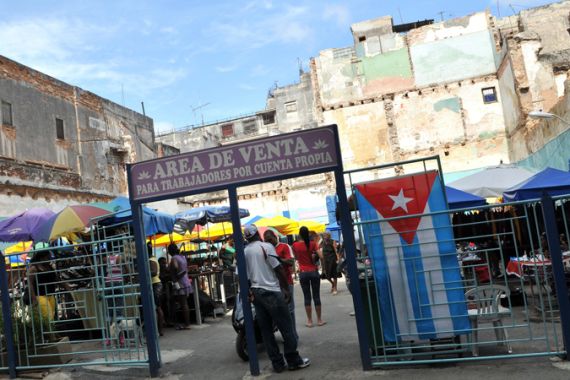
Cuba’s economic revival
As the socialist country introduces limited changes to its economic system, how will the reforms affect Cubans?
It has now been a year since economic reforms in Cuba began to take hold.
Although the country’s economy will continue to be controlled by the state, the reforms are aimed at promoting economic growth and removing some of the inefficiencies of state-run enterprises.
Keep reading
list of 4 itemsRussia’s Putin eyes greater support from China for Ukraine war effort
India-Iran port deal: A gateway to Central Asia or a geostrategic headache?
India’s income inequality widens, should wealth be redistributed?
|
“They’re trying to fix their socialist system…they’re trying to become much more market-oriented, have some elements of capitalism and make the economy work better.” – Philip Peters, the vice-president of the Lexington Institute |
Since November, Cubans were given the right to buy and sell their homes at prices they set. It marks the first time that Cubans have been able to trade real estate since the 1959 revolution.
Cubans can now open small businesses and hire workers. In 2011, around 350,000 people received licences to start their own businesses.
Reducing bureaucracy as well as the enormous state payroll is also part of the plan. By 2014, 1.8 million state workers, which is 37 per cent of the workforce, will be laid off.
So, will Cuba’s economic reforms have the desired effect? And will it have any effect on US policies towards Cuba?
Inside Story Americas discusses with guests: Peter Kornbluh, the director of the Cuba Documentation Project at the National Security Archive; Philip Brenner, a professor of US foreign policy at American University; and Philip Peters, the vice president of the Lexington Institute think tank.
|
“I don’t know what will happen over the next year, but we are prepared to see what happens in Cuba. If we see positive movement we will respond in a positive way… I will always be prepared to change our Cuba policy if and when we start seeing a serious intention on the part of the Cuban government to provide liberty for its people.” Barack Obama, US president |